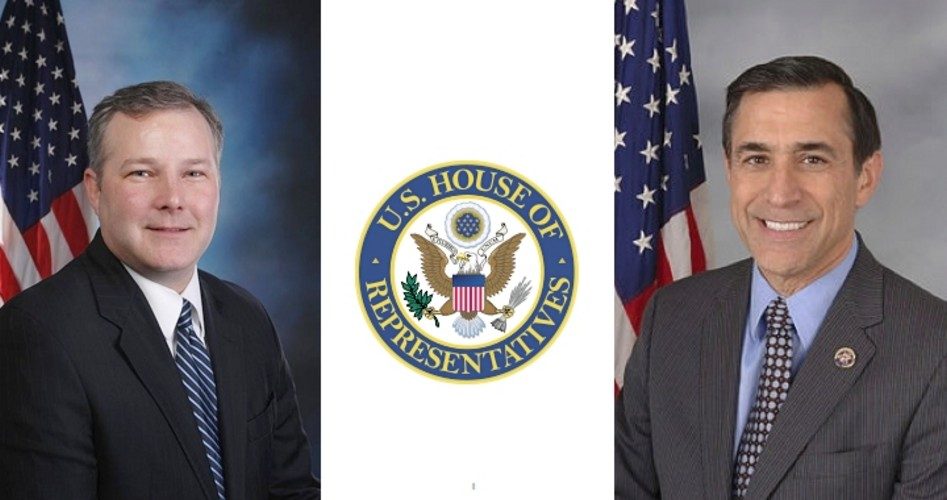
In an effort to curb an array of new regulations, House Republicans passed a bill Thursday that would shackle major federal rules until the national unemployment rate falls to six percent. Authored by Rep. Tim Griffin (R-Ark., pictured at left), the legislation hones in on excessive or poorly-written rules that could halt job growth and impose burdensome costs on American businesses.
“My bill only deals with regulations that have a $100 million impact on the economy so those are what are called significant or major regulations under President Clinton’s executive order from the 90s,” Griffin said of the legislation. “What this bill seeks to do is not to repeal any regulations; it doesn’t impact current regulations; it just says we need to take a deep breath, we need to have a time-out, and let’s let a lot of these job creators catch-up.”
The number of regulations under the Obama White House has exploded, Republicans contended, which is adding to a burdensome regulatory environment that is wounding businesses already drowning under a sluggish economy.
“The Obama administration has issued some 106 rules in its first three years that collectively will cost taxpayers more than $46 billion annually in compliance and lost productivity,” noted Rep. Darrell Issa (R-Calif., pictured at right), House Oversight and Government Reform Committee Chairman. “This is four times the number of major regulations and five times the cost of rules issued in the prior administration’s first three years.”
Rep. Griffin and his colleagues cited an catalog of seemingly nonsensical regulations, including one for “balancing ponies” and one that requires wheelchair ramps at intersections that have no sidewalks. On March 15, the 2010 Americans with Disabilities Act (ADA) Standards for Accessible Design went into effect instituting a slew of new rules, including standards that regulate the height of slopes on miniature golf course holes and a requirement that businesses allow miniature horses on their property as guide animals for the disabled.
In a June 26 article, CNSNews.com reported on other rules included under these ADA standards:
- Saunas — provision of accessible turning space and an accessible bench.
- Shooting facilities — provision of accessible turning space “for each different type of firing position.”
- Golf courses — “an accessible route to connect all accessible elements within the boundary.” An accessible route must also “connect golf car rental areas, bag drop areas, teeing grounds, putting greens, and weather shelters.”
- Gyms — at least one of each type of exercise machine must be positioned for use by a person in a wheelchair.
- Amusement parks — any new or altered ride must provide at least one seat for a person in a wheelchair.
During a press conference on Tuesday, Griffin and several colleagues unveiled a seven-bill package intended to curb such burdensome rules. At the conference, CNSNews.com asked Griffin if he has investigated the ADA guidelines. “Yes, I have looked at that,” he replied, adding that many of the standards implemented by the ADA “are well intentioned but miss the mark.” Mr. Griffin recounted:
One of the first most ridiculous regulations that I heard of, when I got here, was a small business owner came to me and she told me that in her convenient stores she has to allow for ponies, small horses, to come in her stores. And I had no idea what she was talking about.
I said, ‘Seeing-eye dogs?’ And she said, ‘No. Small balancing ponies.’ And I said, ‘I’ve never heard of a balancing pony.’ And she said, ‘Yes, this is part of the ADA regulatory structure, you have to make provision for someone who might have a balancing horse.’ Apparently some people — and I’ve never heard of this in my 43 years, 44 next month — some people use, apparently they use ponies, small Shetland ponies or, certainly they’re not quarter horses, to keep their balance. I’d never heard of that.
I started thinking, ‘Okay, well if someone needs that, that’s fine but do we really need to regulate that? Is it that common?’ And a lot of times the problem is, again, folks are well-intentioned but they want to cover every hypothetical that could ever happen in the world — and that adds cost.
In another excessive regulatory effort, the ADA recently instituted a standard forcing all public pool owners to install handicapped-accessible ramps and lifts or face a $100,000 fine. The move ignited controversy after an obscurity in the regulation prompted a flurry of questions from the hotel industry. In anticipation of the rule, many pool owners invested in portable lifts, only to find out later they would have to install a permanent lift — costing between $3,000 and $10,000 per lift and another $5,000 to $10,000 for installation — for every “water element” available to the public.
Due to the exorbitant expenses, some hotel and pool owners considered temporarily shutting down their pools altogether. “I’m talking to hotel (representatives) who are thinking about closing their pools until the confusion is settled,” Todd Seiders, the risk management director for hotel insurer Petra Risk Solutions, told USA Today. “This is the first time in the past several months that my clients have expressed that closing the pool is an option.”
In commenting on the regulatory debacle, Susan Eckerly, senior vice president at the National Federation of Independent Businesses, asserted, “[A]s the economy continues to sputter, it is important to ensure that the nation’s biggest job creators are not strapped with punishing new rules.” She added, “Research by the NFIB, as well as the federal government, shows that the cost of complying with federal rules is a huge burden and a top concern for small businesses. These job creators desperately need the help of Congress to cut red tape.”



